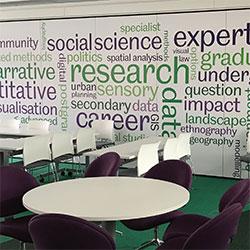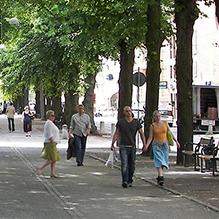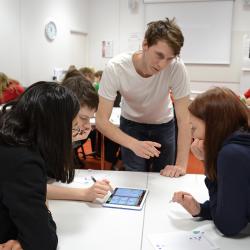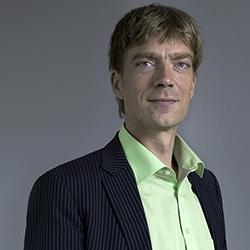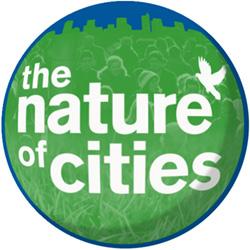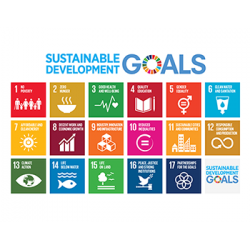Guiding Urban Transitions for Sustainability (GUTS)
The overarching goal of this research project is to develop transdisciplinary knowledge for guiding transitions of socio-technical systems towards a sustainable future. Following a back-casting approach for change this goal hinges on the following three main research questions:
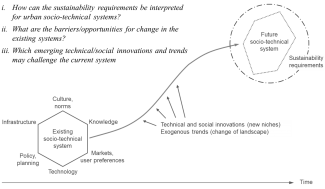
The research within the project is connected to global and local policy processes that are initiated to accelerate transitions for sustainable development. Central processes at the global level include Agenda 2030 launched by the UN, including the 17 new sustainability goals (SDGs) and the Paris agreement for global mitigation of greenhouse gas emissions. The project is divided in three sub-projects each connecting researchers and practitioners. The involved organizations will gain experience from the subprojects that can be directly useful in guiding local sustainability transitions.
The project is a continuation of the WISE - Well-being in Sustainable Cities project.
Sub-project 1: Leadership for sustainable urban transitions
Leaders are facing the double challenge of reaching long-term complex sustainability goals in parallel with meeting short-term operational goals. The sustainability goals call for a substantial change of existing systems, while the governance, planning methods and tools often are adopted to existing operations.
This sub-project aims at understanding the societal challenges and the transition ahead, to understand what governance, methods and tools that could be helpful when engaging in this transition and test promising approaches in practice. We will work in close collaboration with local, regional and national leaders and compare our work with experiences from other cities, mainly in Europe and Africa.
To guide sustainability transitions a conceptual framework will be created building upon socio-ecological principles for sustainability and the 17 SDGs. It will be developed in close collaboration with leaders to understand their demand. How can a “sustainability-driven” logic complement the idea-driven and demand-driven logic? Based on an extensive literature review carried out in the autumn 2016 the framework will be created during 2017 in a co-production process.
Backcasting from principles can be used for transformative and integrative processes. How does backcasting relate to other processes and methods? A review will be made on different ways to conduct backcasting as well as other approaches with similar purposes.
Sub-project leader: Professor John Holmberg, department of Space, Earth and Environment, Physical Resource Theory, Chalmers University of Technology.
Sub-project 2: Planning and methods for sustainable mobility
The main methods used for analysis and planning in the transport sector are primarily developed to cope with marginal changes in the transport system. It is however becoming increasingly apparent that the transport system will have to be transformed rapidly in response to future sustainability requirements such as the long-term climate targets. Meanwhile, new technologies such as electrical or autonomous vehicles and the emergence of new behavioral patterns bring both challenges and opportunities for such sustainability transitions. All this suggests that there is an urgent need to learn about and develop new planning methods and tools that are able to handle also non-marginal changes in the transport system.
In this sub-project, we want to help support and guide the ongoing processes of the participating organizations aimed at non-marginal change. One way to accomplish this is to highlight alternative or complementary bases for selected planning problems and strategic choices. We also want to contribute knowledge about the conditions for new types of planning activities that have the potential to become key interventions for a transition towards a sustainable transportation system. The sub-project should also contribute to increased knowledge of the participants and their organizations by means of close collaboration in transdisciplinary working groups.
The sub projects hosts the network Sustainable Urban Mobility.
Sub-project leaders: Alexander Hellervik, Strategic planner Trafikverket, and Jonas Nässén, Associate professor Chalmers University of Technology
Sub-project 3: Lifestyles in Low-carbon Gothenburg
The interaction between researchers and practitioners through the WISE-project was important for the development of the climate programme for the City of Gothenburg. This programme is unique regarding the embracement of a consumption perspective (as a complement to assessing the greenhouse gas emissions within a geographical area), e.g. through setting goals of reducing the climate impact of the inhabitants lifestyles. This perspective is also incorporated in the regional strategy for a good life in a fossil independent region. This sub-project will continue to support the implementation, and learn from, these climate strategy processes.
The climate strategies of both the city of Gothenburg and the region Västra Götaland points out vacationing and air-travel as especially important areas. The subproject will develop the “Nätverket för klimatsmarta semestrar”/Network for climate friendly vacationing" where Turistrådet Västsverige, Göteborg & Co, Handelshögskolan, Chalmers and others participates. During 2017 a study was also conducted regarding which possibilities cities have for influencing private citizens’ air-travel habits. The site klimatsmartsemester.se and travelandclimate.org has been developed - a way to calculate carbon emissions from your travel.
Sub-project leader: Jörgen Larsson, Assistant professor, Department of Space, Earth and Environment, Physical Resource Theory, Chalmers University of Technology.
